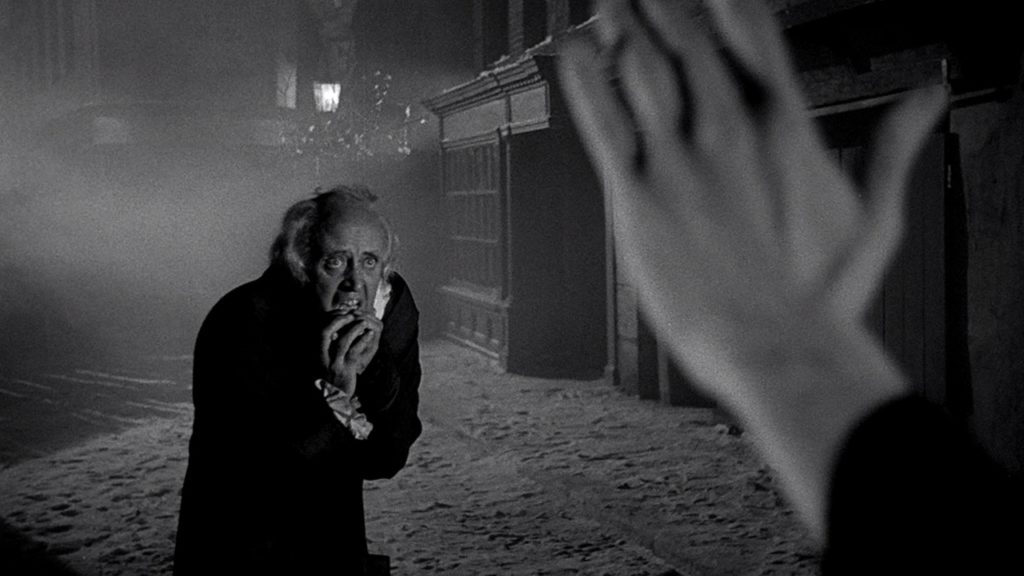In all the adaptations of A Christmas Carol that I’ve seen, Ebenezer Scrooge is almost always depicted as a ghoul at the start who is gradually humanized. It’s a perfectly compelling arc, but it raises the question of how he ever got to be so monstrous as he is at the start of the story while still thriving as a businessman and functional member of society.
The classic 1951 Christmas Carol adaptation (technically titled Scrooge according to most sources I’ve seen) gives us the best and most believable Scrooge I’ve ever seen, courtesy Alastair Sim. Indeed, this Scrooge’s nastiness in the story’s opening is very clearly the invective of a witty asshole using snark as a defensive mechanism. His “decrease the surplus population” rant has a self-awareness of its shocking cruelty so that it’s said almost with an eyeroll.
I like this take on Scrooge a lot. It grounds him a bit more, makes him seem like a real human. And it makes his transformation all the more effective. It’s so gratifying and fulfilling to see him warm up in the end, like a depressive friend who’s fully and finally escaped their mental sickness.
On top of Scrooge himself, this is all-around one of the best Christmas Carol film productions I’ve seen, period. In fact, it’s probably at the top of the list for straightforward dramas — I only put Muppet above it.

The production is great from top to bottom. I love the trippy and unnerving sound design of Marley’s ghost and the flash of Hell he gives Scrooge. The direction, in general, is spot on — there’s a brilliant camera angle to introduce us to the frightening Ghost of Christmas Future that will be sticking with me.
The movie also brings in some invented material not in the book (or at least not in any adaptation I’ve seen — I’ve never actually read the Dickens novella), and all of it deepens the story. In particular, it adds more dimension and details to Marley and his death that flesh out Scrooge’s business history, tying in some anti-industrialization rhetoric.
My main knock on this one is that I think the story suffers from de-emphasizing Alice (aka Belle), the Christmas Past love interest. It feels kind of hand-waved rather than teased out to full emotional impact. As a darker drama, it’s inevitably more drawn to the dark
But this is definitely the standard by which I’ll be measuring other Christmas Carol adaptations — and, especially, other Ebenezer Scrooges.
- Review Series: A Christmas Carol
Is It Good?
Exceptionally Good (7/8)
Dan is the founder and head critic of The Goods. Follow Dan on Letterboxd. Join the Discord for updates and discussion.

